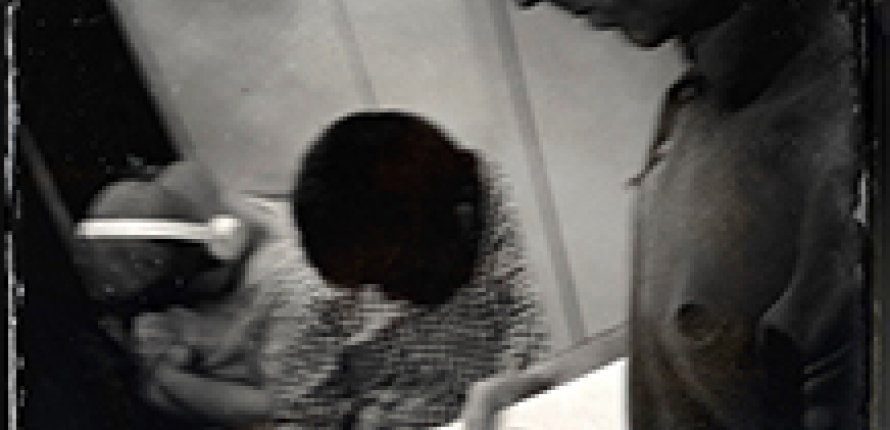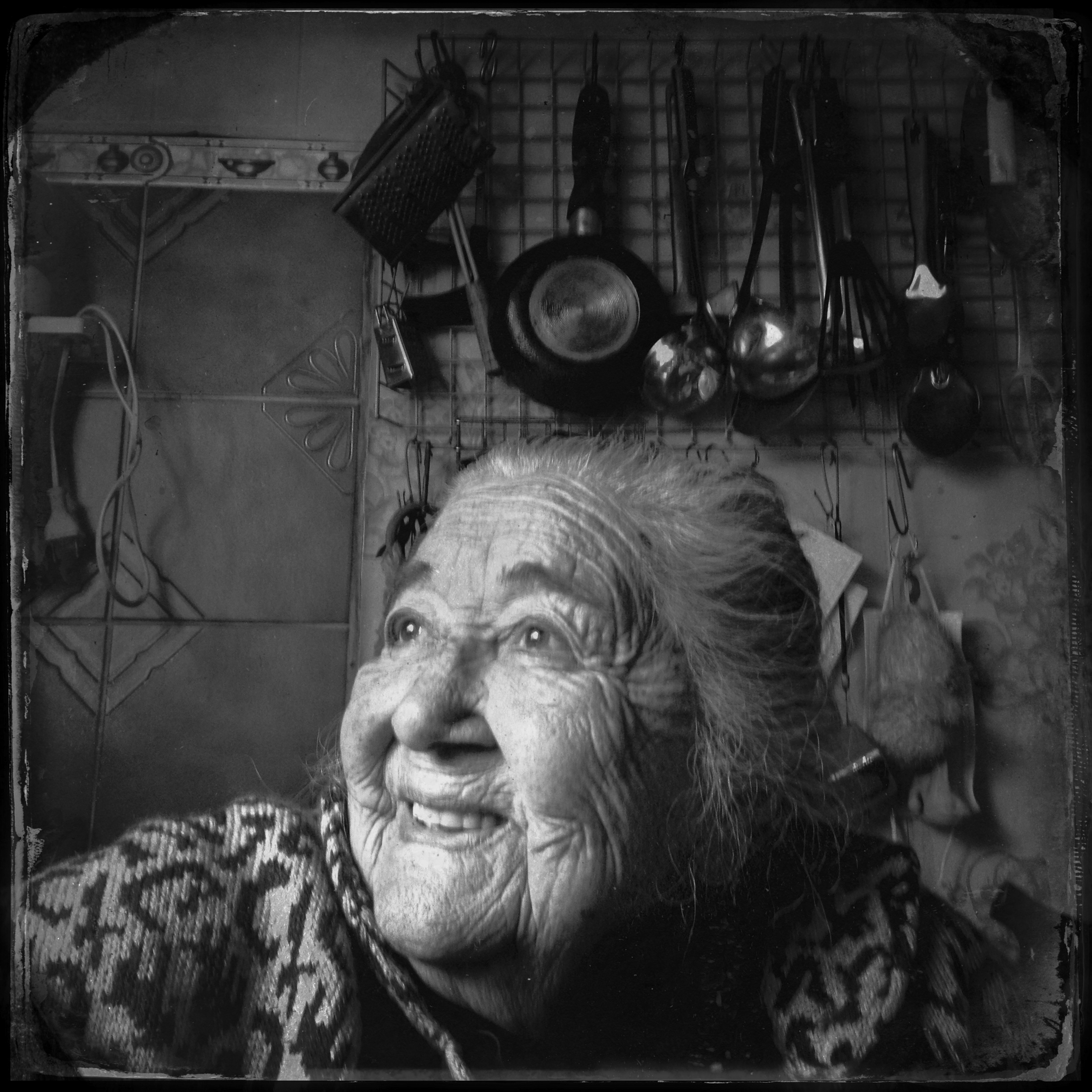Excerpts from The Chilean Chronicles

Jeffrey Kelly Lowenstein, Assistant Professor of Journalism, Grand Valley State University
2013-2014 Core Fulbright U.S. Scholar to Chile

Photo Credit: Jon Lowenstein/NOOR
My wife Dunreith and I spent a magical Fulbright semester in Santiago from July to December 2013. We arrived the day after we sold our house in Evanston, Illinois, and were fortunate to be in Chile during a very momentous time in the nation’s history.
Perhaps top among the many significant and emotional moments was the unprecedented eruption of memory around the fortieth anniversary of the coup on September 11, 1973 that toppled the democractically-elected government of Salvador Allende and ushered in the brutal dictatorship headed by Gen. August Pinochet.
This post, taken from my recently published book, The Chilean Chronicles: Moments and Memory Forty Years After The Pinochet Coup, describes the events I attended on the day of the anniversary.

Photo Credit: Jon Lowenstein/NOOR
The photo is of Ana González, then an 87-year-old human rights activist who had her husband, two sons and pregnant daughter-in-law disappeared during the dictatorship. We met at the second of three memory ceremonies I attended on September 11. During a two-hour interview at her home, my brother, acclaimed photographer Jon Lowenstein took this picture. Doña Ana made the following statement which is the book’s epigraph:
“When you take this path of liberation..., you know that you can die at any moment. But those of us who remain are not going to allow that to happen because forgetting is death. Because of that, memory is essential.
Chilean Chronicles, Part 48: A Day of Memory in Three Parts
Part I: Parroquia la Anunciación
A humble room with red brick and a largely bare white wall.
A large wooden cross with a chip on one side and a portrait of a bearded Jesus beneath it.
A warm feeling of reunion filling the cold air and dark room, of people hugging each other hard and long.
Percival Cowley, a pastor radiating with the goodness that comes from having been part of the tradition of church leaders who fight for justice, of Niemoller and Romero and Tutu and Lapsley. A man who donned a white scarf with red crosses and who spoke, in an even, deep voice about remembering the coup that took place 40 years ago today.
But a man who also spoke about the ordinary violence and abuse that continues today, the failures to give poor people their just dignity and respect, and the economic, moral and social violence that endures and that keeps Chile from being a just country.
Josefa Errázuriz, the newly elected mayor of Providencia, the section of Santiago where we live. A woman with short brown hair and fierce determination who defeated the incumbent, a man who used to work for Pinochet’s secret police and said his qualifications were that he was an effective project manager.
A leader who included many sectors of the community in the ceremony of memory and welcomed all types of people into the room.
A group of three Communists who stood on one side of the room holding a flag that honored a slain comrade.
The old.
The young.
The women.
And the Mapuche, the indigenous people who came forward in their traditional dress and spoke in Mapudungun, their language, and in Spanish, expressing their gratitude for being included in the ceremony and the community.
The kiss on the cheek between Maria Jesus Aleñir, one of the Mapuche women, and Cowley.
The resolve in the room that the atrocities of the past should never happen again.
After the ceremony ended, Cowley told me about having heard about the coup the night before it happened and walking the streets in the early morning of September 11 40 years ago.
Silence.
Realizing the next day that everything was changing.
Having to stay inside for three days. Then, when he and so many others, were allowed to go out, seeing the brutality of the regime instantly being visited on people in the southern part of Santiago.
“We thought the military was different from other soldiers in Latin America,” he said. “We were right. They were more brutal.”
The words of Emilio, a young Communist whose mother fled the country to Holland and whose grandfather was detained and tortured, along with so many others, in the National Stadium.
It’s important for us to learn about the past, he said, because we need to know about this era of comprehensive unconstitutionality.
Part II: Museum of Memory and Human Rights
The giant shattered half spectacle of Salvador Allende greeting you as you walk down the smooth surface toward the open amphitheater.
A circle of chairs arranged in pairs.
An actor dressed as Allende, with his beard and three-piece suit coated in parts with dust, walking stiffly to the middle of the circle, and starting to read in a calm, yet emotion-filled voice on the people’s radio station his final address to the nation.
“I will not resign,” he says before going on to thank all the groups of people who had put their trust in him as a servant of the Constitution.
“I will pay for loyalty to the people with my life,” he says.
“Viva Chile!” he declares at the end of his speech.
“Viva Chile!” The group of people, actors themselves, answer, standing outside the circle in a line traced by roses placed and ashes on the ground, holding white handkerchiefs aloft in the air. One of them had herself been tortured during the dictatorship.
“Viva Chile!” The people respond, including Ana Gonzalez, a sturdy woman with long, lush red nails, a thick red necklace, a cane and a warm, open face and whose husband, two sons and daughter-in-law were all disappeared during the dictatorship.
“Viva Chile!” Senora Ana yelled, cupping her hands so that her voice would project farther.
Senora Ana, who sat because walking is difficult and who was treated as royalty by women and men who sought her out or wanted a hug or combed her long, grey hair.
Senora Ana, who wrote down her number and motioned for me to call her so that I would stop asking her questions and she could listen to the testimonies that were projected from the center of the circle to the open space.
The actors walking into the space after the man playing Allende walked out, sitting in the chairs and reading the testimonies they had been given to each other as a horde of photographers and videographers and radio reporters, myself included, crept ever closer.
A woman with the picture of a relative weeping and being comforted by another woman who enveloped her in her arms and did not let her go.
The large Chilean flag flanked by two black flags billowing in the gentle breeze in the mid-afternoon sun.
The rows of colorful pictures drawn by children of the disappeared titled Aqui estan.
Here they are.
The answer to the question that primarily mothers and sisters and aunts and grandmothers of incalculable courage asked in Chile and Argentina, the neighboring countries where tens of thousands of people were disappeared, sometimes during the night, almost always never to be seen again.
The pictures that were drawn by children as young as three and as old as 17, but whichever age the children were the images were filled with love for, and connection to, the mother or father who had been taken from them.
A two-sided exhibit of photographs taken by Edward Shaw on the streets of Buenos Aires in the early 80s. Pictures of outlined bodies in subway stations and on advertisements with the family member’s name, date of birth and, sometimes, a question mark.
Or the words, “Aparición con vida.”
Appearing with life.
The crowd that swelled and grew and watched and listened and cried and talked and laughed.
The sounds of the testimony and the rapt attention of friend and memory scholar Hugo Rojas as he listened while we walked back up the smooth slope to the Metro Station.
Part III: Communist and Socialist Vigil at Estadio Nacional
Being deposited by the bus in front of the stadium that was transformed by the dictatorship into a torture chamber.
The memories of Grateful Dead concerts being sparked, with the combination of commerce and common conviction and passion for the cause and peaceful mingling and a decentralized yet unified feel.
A young boy sitting on his father’s shoulders and carrying a large red flag.
Dozens and dozens of candles being lit.
Hand-written poems.
A row of shoes made of clear tape.
Pictures of Allende.
Calls for truth and justice.
The crowd gathering and growing as the sun made its way down and began to mark the end of the day.
The quiet on the city’s streets as nearly all shops closed up early for the evening in anticipation of greater violence than there’s been before.
The knowledge that Chile’s wounds will still be there tomorrow, but having to think that today made a positive difference.
Gratitude to Dunreith for joining me on our journey.
Memory.
